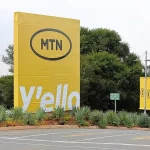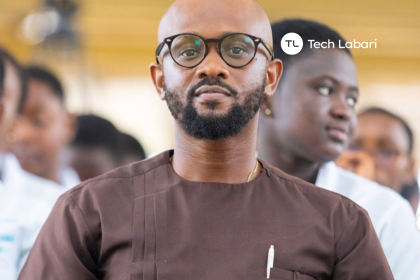Vodafone Ghana is one of the leading telecommunications companies in the country, with a market share of about 20%. It offers a range of services, including voice, data, mobile money, and enterprise solutions.
However, in recent years, the company has faced several challenges that have eroded its reputation and customer satisfaction.
So what went wrong?
History of Vodafone
In late 2007, the government of Ghana set up the National Communications Backbone Company ( NCBC), a semi-autonomous corporate entity to manage the complimented optic fibre transmission network which was then managed and controlled by the erst-while Voltacom, a wholly owned subsidiary of the Volta River Authority (VRA) which at the time, provided backbone services in Ghana.
Huawei Technologies S.A. Gh. Ltd, a Chinese Multinational Tele-communication Company, was charged with upgrading and expand the existing VRA OPGW fibre network by linking it to all the regional capitals and 36 major towns and cities across the country by optical fibre to enhance e-government, rural telephony, and internet services.
National Communication Backbone Company was set up to provide broadband capacity for the deployment and application of Information and Communication Technology (ICT) nationwide, to pave way for Ghana’s economic and social development. This was also intended to improve governance, expand educational opportunities, manpower development, healthcare delivery, general commerce, modernized agriculture, and also improve environmental monitoring and business development.
The first Phase of National Fibre Optic Backbone Network was completed in December, 2007. 100% of NCBC was transferred to Ghana Telecom in August 2008, prior to the Vodafone purchase.
Gradual Decline In Market Share
The Government of Ghana retained 30% of Vodafone Ghana Telecom with Vodafone owning 70%. However, over time, Vodafone has been losing market share to its bigger competitor MTN.
In 2022, Vodafone had only 18% of the voice subscription market share.
Late To 4G
Vodafone Ghana was late to the 4G race. MTN went live with its 4G service in 2017. Vodafone went live with its 4G service in 2019, two years after MTN. With its late start, Vodafone could not keep up with its rival in the 4G space.
Vodafone Ghana has been lagging behind its competitors in terms of innovation and digital offerings. The company needs to invest more in developing and launching new products and services that cater to the evolving needs and preferences of its customers
Poor Customer Service and Complaint Resolution
Another factor that has affected Vodafone Ghana's performance is the poor customer service and complaint resolution that it provides. Many customers have reported that they encounter rude, unprofessional, and unhelpful staff when they contact Vodafone Ghana's customer care center or visit its retail outlets.
They also claim that their complaints are not resolved in a timely and satisfactory manner. Some customers have even resorted to social media platforms to express their frustration and dissatisfaction with Vodafone Ghana's service delivery.
Sale To Telecel Group
The Vodafone Group officially sold its 70% share of Vodafone Ghana to the Telecel Group in 2022. The deal was approved by the Ghana government in 2023.
Telecel Group plans to rebrand Vodafone to "Telecel" by the end of February 2024.
Getting Back on Track
So, how can Vodafone Ghana (soon to be Telecel) turn things around under its new owners? Here are some possible strategies that could help the company regain its brand and market position in Ghana.
Investing in innovation and digital transformation
Vodafone Ghana has been lagging behind its competitors in terms of innovation and digital offerings. The company needs to invest more in developing and launching new products and services that cater to the evolving needs and preferences of its customers.
For example, Vodafone Ghana could introduce more mobile money solutions, e-commerce platforms, content streaming services, and cloud computing solutions. These could help the company diversify its revenue streams and attract new segments of customers.
Rebranding and repositioning
The company needs to rebrand and reposition itself as a modern, affordable, and customer-centric telecom operator that offers value-added services and solutions. The company could also leverage its social responsibility initiatives and partnerships to enhance its brand image and reputation.
Focusing on customer retention and acquisition
The company has a loyal customer base of over 9 million subscribers, but it also has a high churn rate and a low market share. The company needs to focus on retaining its existing customers by offering them competitive tariffs, attractive bundles, loyalty rewards, and excellent customer care.
The company also needs to acquire new customers by expanding its distribution channels, offering promotions and incentives, and targeting underserved segments such as rural areas, youth, and SMEs.
It remains to be seen if the new owners of Vodafone Ghana will be able to compete and turn around the brand in the midst of heavy competition and dwindling subscribers.
Catch up on news and other tidbits on our WhatsApp Community Page, Twitter/X, and subscribe to our weekly newsletter to ensure you don’t miss out on any news.










